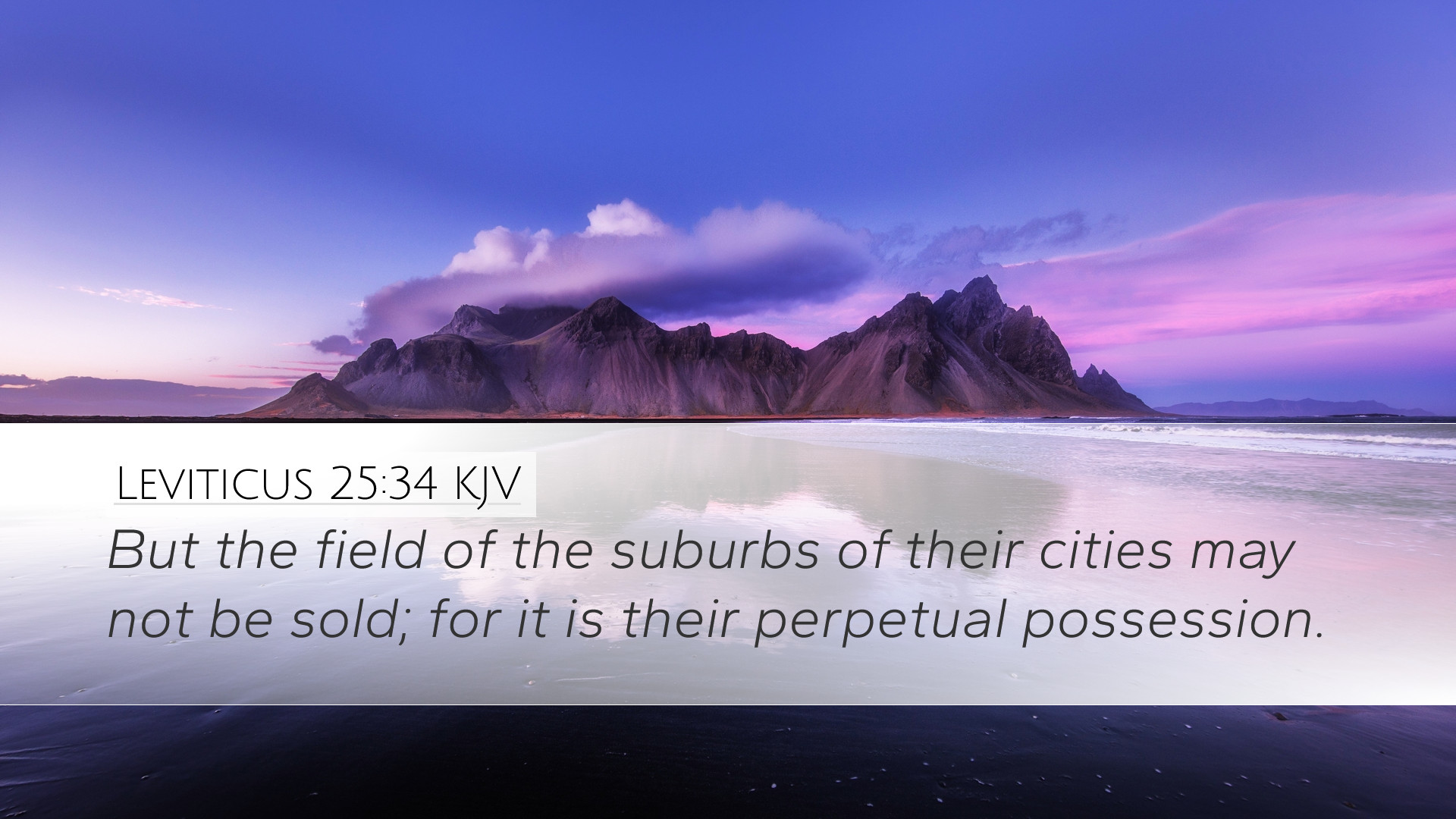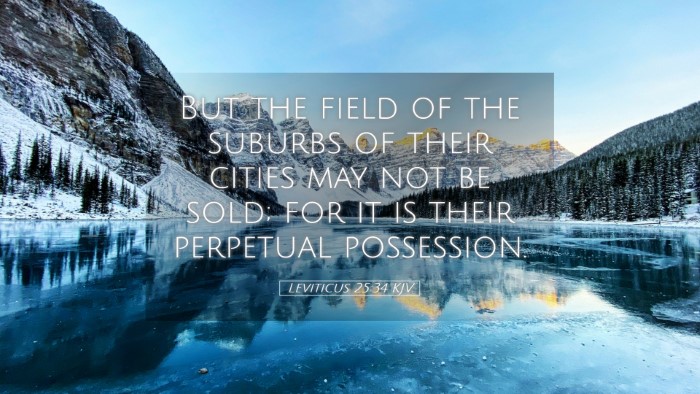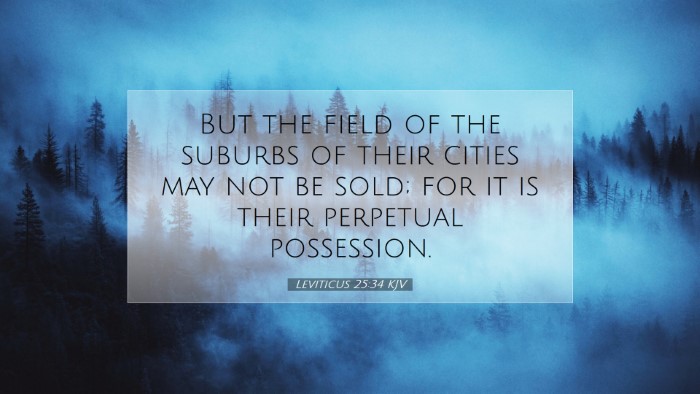Commentary on Leviticus 25:34
Leviticus 25:34 (KJV): "But the field of the suburbs of their cities may not be sold; for it is their perpetual possession."
This verse is situated within the context of the Jubilee and the laws regarding land ownership in Israel. It not only pertains to the physical land but also encapsulates profound theological principles and ethical considerations that can be appreciated for their enduring significance.
Interpretation and Theological Insights
The Nature of Property in Israel
One of the most striking aspects of this passage is the concept of perpetual ownership of land by the Levitical priests and the importance placed on the fields that surround the cities. These regions, termed as “suburbs,” were intended to remain within the tribe’s possession, symbolizing stability and God’s providence.
-
Matthew Henry: In his commentary, Henry emphasizes that these suburbs were a divine decree meant to ensure that the priests maintained a connection to the land as representatives of the Lord. This arrangement underscores God's intention for His people to have access to their heritage and resources continuously.
-
Albert Barnes: Barnes points out that this stipulation reflects God’s will for His people living in accordance with His laws, ensuring they live sustainably and maintain their inheritance. He comments on the spiritual implications of property, seeing it as part of God's broader order within His covenant with Israel.
-
Adam Clarke: Clarke offers a critical view on the social justice implications rooted in this verse. The forced return of land every 50 years (during Jubilee) symbolizes God’s desire to prevent the permanent loss of family inheritance and to preserve equity in society.
The Significance of 'Perpetual Possession'
The term "perpetual possession" denotes more than mere ownership; it brings to light themes of stewardship, responsibility, and the divine origin of material blessings. This aspect of levirate property rights serves to ensure that God's blessing remains with His chosen people.
-
Matthew Henry: He articulates that this divine arrangement serves as a symbol of God’s faithfulness to His covenant. God is depicted as the ultimate owner of the land, with His people entrusted as stewards rather than mere proprietors.
-
Albert Barnes: Barnes remarks that this immutable ownership structure highlights a protective measure against greed and exploitation, a reflection of God’s social order where the well-being of His people is prioritized.
-
Adam Clarke: Clarke’s analysis emphasizes the dangers of materialism and suggests that this divine plan for land ensures that wealth does not become solely concentrated in a few, thereby fostering a community-oriented theology.
Principles for Today
Applications for Ministry and Community Life
The implications of Leviticus 25:34 extend into contemporary discussions of property, stewardship, and community. Each commentator stresses the relevance of these themes in current societal frameworks.
-
Matthew Henry: He prompts leaders within the church to recognize their role as stewards of God’s resources. This is pivotal when considering the treatment of church property and the support for pastoral ministries.
-
Albert Barnes: Barnes provides a poignant reminder that churches must ensure that their dealings with property and finances reflect God's justice and priorities. This includes consideration for the marginalized and a respect for the intrinsic value of every person as created in God’s image.
-
Adam Clarke: Clarke encourages church leaders to strive for a just society by advocating for policies that protect the rights of individuals and their families, reminiscent of the Jubilee principles, emphasizing God's desire for equity and community well-being.
A Call to Reflect on God's Provisions
Ultimately, Leviticus 25:34 is a reminder of God’s unchanging provision and the importance of maintaining a relationship with our heritage, rooted in God’s everlasting promises. As theologians and scholars reflect on this scripture, it ignites discussions around ethical living and the importance of grace and redemption in economic practices today.
Conclusion
In providing a detailed understanding of Leviticus 25:34, we see a tapestry of divine intention regarding property, community, and social justice that transcends time. This verse offers rich avenues for reflection and study for pastors, students, and scholars alike, inviting us to engage deeply with the Word of God in our contexts.


